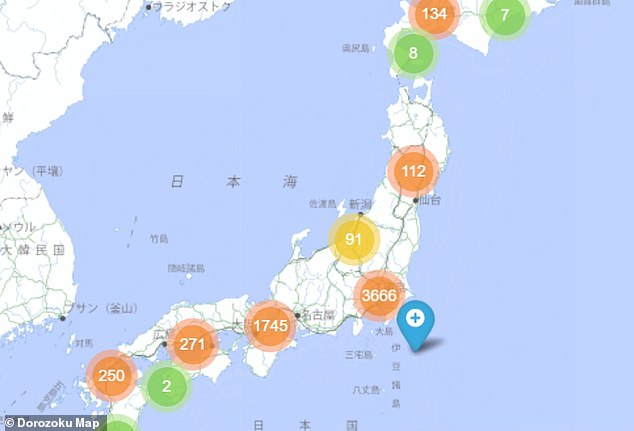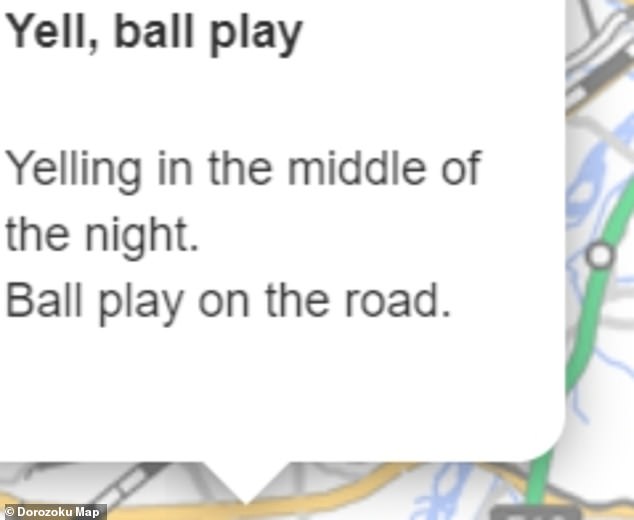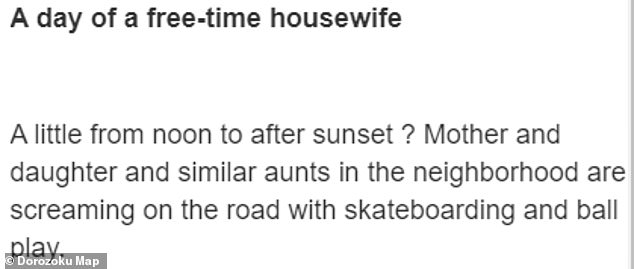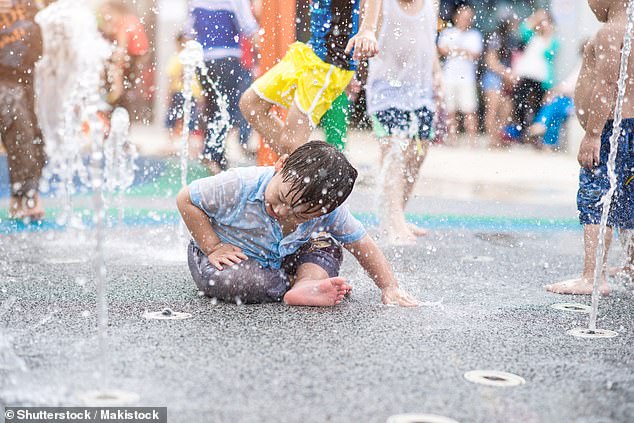Noisy children playing in the street? There’s a map for that.
Controversy has been crescendoing over an interactive map of Japan that pinpoints neighbourhoods with noisy children, so that those who want a quieter life can avoid them.
The guide is called the Dorozoku Map – Dorozoku is an online term used in Japan for those who are loud in public – and is powered by comments submitted by irritated residents. Their remarks generate location icons on the map for ‘nuisance zones’ and pop up when those markers are clicked.

The Dorozoku Map is powered by comments submitted by irritated residents
Examples include ‘in the evening children run around and are noisy’, ‘preschoolers who think the road is a garden’, ‘there are many annoying acts such as playing tag on the road’, ‘being a foreigner he has a loud voice’, ‘children come out and make strange noises’ and ‘he crawls on his stomach, rides a skateboard and has a dog pull a skateboard’.
The Dorozoku site – also known as The Road Tribe Map – has been up and running since 2016, with the complaint tally now running into the thousands.
Most of the complaints are about children, but all age groups are targeted, including babies that cry at 7am and parents who ‘stare at people parking their car’.
The Japanese are known for having a quiet, reserved nature and the anonymous 40-something webmaster of the map – known only as ‘seaget’ – told The Asahi Shimbun newspaper that it ‘provides information so users can choose better places to relocate to’.
He explained that he launched the map after noisy children began to appear in front of his house, disrupting his concentration while working at home.

The Dorozoku site has been up and running since 2016, with the complaint tally now running into the thousands




Some of the many, many complaints filed to the Dorozoku site
He told MailOnline Travel that he doesn’t have a problem with children playing outside, but ‘some parents let their children play in front of other people’s houses for hours every day in a small residential area’, a practice he claims is ‘dangerous and annoying’ and one that can ‘sometimes lead to road accidents’.
He continued: ‘In many cases, there are parks nearby. But for some reason, these parents don’t want to take their children to the park.
‘The noise and vibration of the ball, the intense shouting, the damage done to houses and cars, are all things that some people have to put up with every day on the Road Tribe Map.
There are parents who, instead of listening to the warnings of others, start to escalate their children’s play and harass them Dorozoku map webmaster
‘Some people work in hospitals or on night shifts and have serious problems sleeping because it is too noisy during the day.
‘Anyone who is warned to be quiet and listens quickly will not be put on the map.
‘There are parents who, instead of listening to the warnings of others, start to escalate their children’s play and harass them. These people are called “Dorozoku”.’
Seaget said he carefully filters out slanderous messages and anything that could reveal personal information or lead to harassment, such as ‘only girls are there’, The Asahi Shimbun reports.
And some posts are removed if he learns that issues flagged have been settled.
But still, unsurprisingly, the site has attracted criticism.
One Tokyo nursery was shocked to find itself namechecked on the map as a facility with ‘noisy kids’, despite being open for a complaint-free five years.
Norihisa Hashimoto, a professor emeritus of acoustic environment engineering at the Hachinohe Institute of Technology, told The Asahi Shimbun that ‘those who post comments should be tolerant and calmly rethink if others’ behaviour can really be deemed as a nuisance’.

A professor in Japan has urged those thinking about posting to the Dorozoku site to think about whether others’ behaviour is really a nuisance
Source link : https://www.dailymail.co.uk/travel/travel_news/article-9278017/The-interactive-map-Japan-pinpoints-neighbourhoods-noisy-children.html












